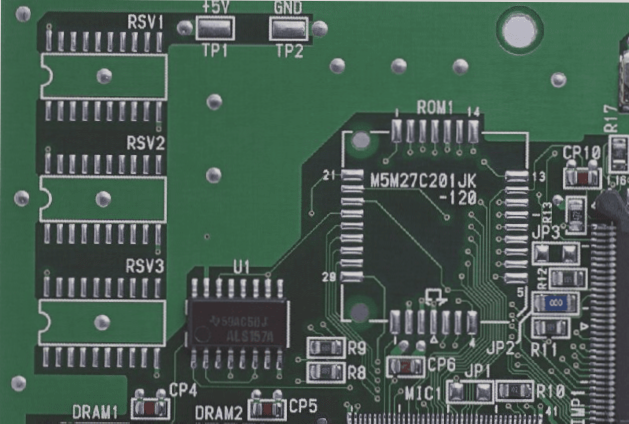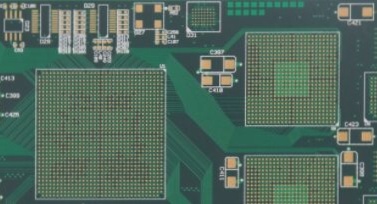There is a small battery in our mobile phone, something we touch every day. Let’s delve into it today.
**PCB Components**
1. **Component Selection Criteria**
– **Protection IC Selection**
– High-end: MM3280H02, Seiko 8261AAGMD, Ricoh R5400N110FA
– Low-end: Composite IC, etc.
– **Special Requirements of Individual Customers**
– **MOSFET Selection**
– Mid-to-high end: Panasonic MTMC8E2A0L; AON3816, Magna, etc.
– Low-end: MOS 8205, etc.
– **Resistor-Capacitor**
– Capacitors: Use TDK, MARUTA brands, with X5R or X7R materials. Avoid Y5V capacitors.
– Resistors: Use TDK, Yageo brands, with materials of higher accuracy.
– **ID Resistance and NTC Resistance**
– Choose resistance value and accuracy based on customer needs. For NTC thermistors, determine the B value and package form according to space and wiring requirements of the PCM.
– **Fuse and PTC**

1. When the customer requests usage, the fuse should prioritize the 6A/0603 package. If the customer does not specify, but certification requirements arise, using a PTC or fuse must be considered. If neither customer requirements nor related certifications are applicable, the fuse and PTC can be omitted.
2. Design of PCB Protection Board
PCB Material: FR4 is the preferred material for protective boards, chosen for its fire resistance, mechanical strength, and cost-effectiveness. If the gold finger on the PCM must be exposed, it should be electroplated with a durable metal layer, such as: A) Thick gold plating with a thickness ≥ 0.25 μm B) Ordinary gold plating with a thickness ≥ 0.015 μm, and C) Hard plate copper skin with a thickness ≥ 1.0 ounce.
3. Electrical Performance Test Standards
Measuring Instrument Requirements:
– Voltmeter: Accuracy should be no less than 0.5%, with internal resistance of at least 10KΩ/V.
– Ammeter: Accuracy should be no less than 0.5%.
– Thermometer: Accuracy should be within ±0.5°C.
The current from the constant current source should be stable and adjustable, with variations within ±1%. The voltage from the constant voltage source should be adjustable, with variations within ±0.5%.
4. PCB Quotation Method:
When preparing to manufacture a PCBA board, create a detailed material form and confidently place an order after thorough comparison. The steps include:
1. Calculate the total material cost based on BOM and Gerber files.
2. Calculate the cost of SMT patches and DIP plug-ins.
3. Calculate the PCBA test costs (e.g., ICT, FCT).
4. Evaluate packaging and logistics.
5. Add a cost-based pricing adjustment according to the customer’s region and product characteristics, generally calculated as: quotation = cost * (1 + x%), where x requires comprehensive evaluation. Typically, x ranges around 20%. PCBA quotation reflects the expertise and vision of the sales staff and is crucial for improving the conversion rate of potential customers.
**PCB Components**
1. **Component Selection Criteria**
– **Protection IC Selection**
– High-end: MM3280H02, Seiko 8261AAGMD, Ricoh R5400N110FA
– Low-end: Composite IC, etc.
– **Special Requirements of Individual Customers**
– **MOSFET Selection**
– Mid-to-high end: Panasonic MTMC8E2A0L; AON3816, Magna, etc.
– Low-end: MOS 8205, etc.
– **Resistor-Capacitor**
– Capacitors: Use TDK, MARUTA brands, with X5R or X7R materials. Avoid Y5V capacitors.
– Resistors: Use TDK, Yageo brands, with materials of higher accuracy.
– **ID Resistance and NTC Resistance**
– Choose resistance value and accuracy based on customer needs. For NTC thermistors, determine the B value and package form according to space and wiring requirements of the PCM.
– **Fuse and PTC**

1. When the customer requests usage, the fuse should prioritize the 6A/0603 package. If the customer does not specify, but certification requirements arise, using a PTC or fuse must be considered. If neither customer requirements nor related certifications are applicable, the fuse and PTC can be omitted.
2. Design of PCB Protection Board
PCB Material: FR4 is the preferred material for protective boards, chosen for its fire resistance, mechanical strength, and cost-effectiveness. If the gold finger on the PCM must be exposed, it should be electroplated with a durable metal layer, such as: A) Thick gold plating with a thickness ≥ 0.25 μm B) Ordinary gold plating with a thickness ≥ 0.015 μm, and C) Hard plate copper skin with a thickness ≥ 1.0 ounce.
3. Electrical Performance Test Standards
Measuring Instrument Requirements:
– Voltmeter: Accuracy should be no less than 0.5%, with internal resistance of at least 10KΩ/V.
– Ammeter: Accuracy should be no less than 0.5%.
– Thermometer: Accuracy should be within ±0.5°C.
The current from the constant current source should be stable and adjustable, with variations within ±1%. The voltage from the constant voltage source should be adjustable, with variations within ±0.5%.
4. PCB Quotation Method:
When preparing to manufacture a PCBA board, create a detailed material form and confidently place an order after thorough comparison. The steps include:
1. Calculate the total material cost based on BOM and Gerber files.
2. Calculate the cost of SMT patches and DIP plug-ins.
3. Calculate the PCBA test costs (e.g., ICT, FCT).
4. Evaluate packaging and logistics.
5. Add a cost-based pricing adjustment according to the customer’s region and product characteristics, generally calculated as: quotation = cost * (1 + x%), where x requires comprehensive evaluation. Typically, x ranges around 20%. PCBA quotation reflects the expertise and vision of the sales staff and is crucial for improving the conversion rate of potential customers.


